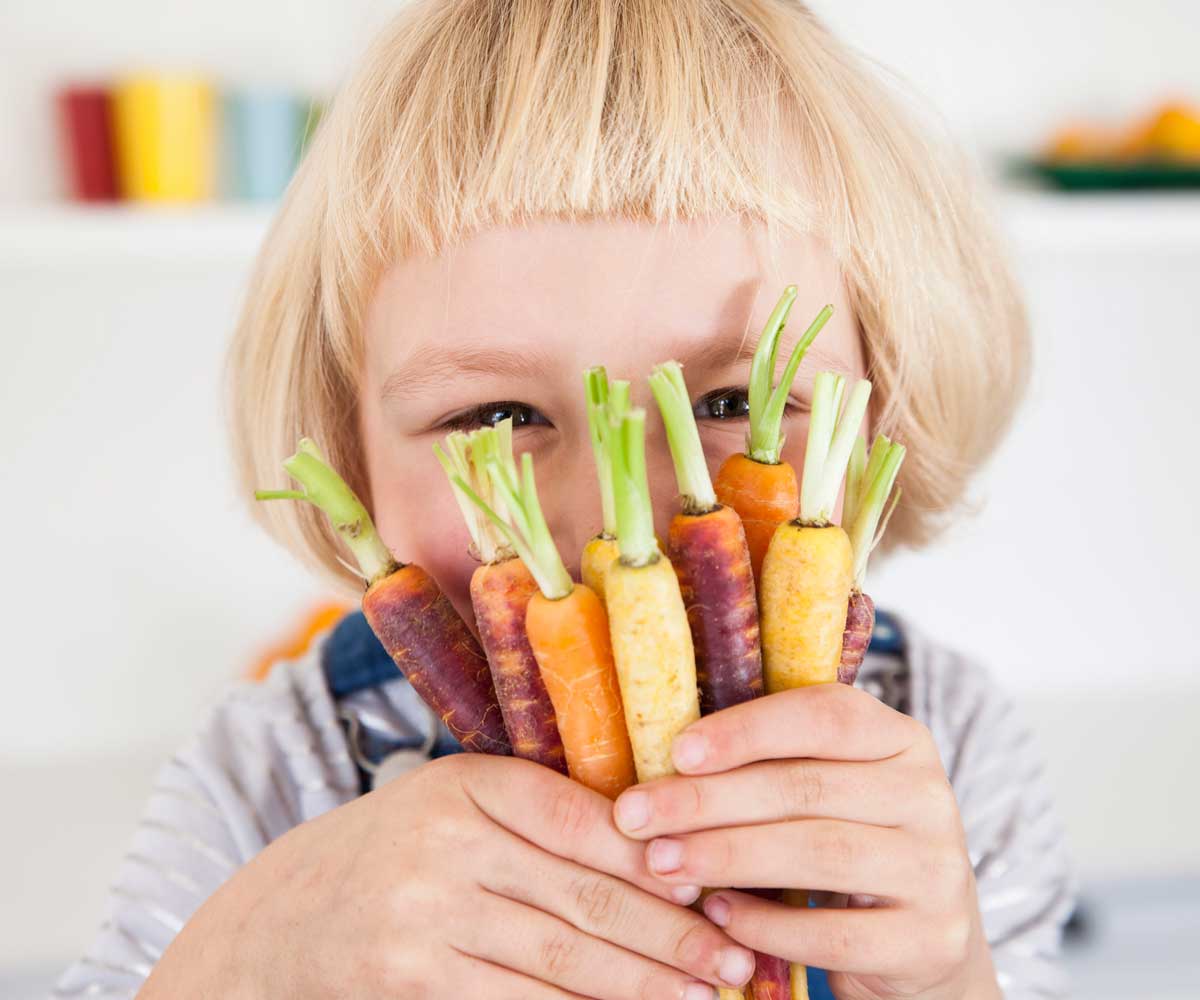Food trends come and food trends go, but veganism is one that seems to have stuck – and only continues to rise.
While the majority of New Zealanders are ‘meat eaters’, our growing bias towards shunning animal products for ethical or other reasons is reflected in the increasing number of restaurants and cafes that offer vegan options. In Britain the number of vegans has risen by 360 per cent in the past decade, and if you Google food trends for 2017 and 2018, phrases like ‘plant-based diets, ‘plant-based protein’, ‘meat-free’ and ‘taking dishes back to their plant-based roots’ come up in every listicle.
People everywhere are converting to the lifestyle, but while it’s possible for an adult to thrive on a vegan diet (if they replace the nutrients they’re not getting through animal products), it’s more of a challenge to meet the nutritional needs of children.
Children have higher nutritional needs than adults because they’re growing, and animal products are the best source of those nutrients, says Auckland dietitian Sylvia North of Fearless Nutrition.
“Kids need a lot of nutrients relative to their body size,” North explains. “They have higher needs than adults for zinc and iron, and their protein needs are also much higher. They’re at a crucial stage in terms of their brain development, and they have high needs in all of those important fats and soluble vitamins – which are best obtained from animal products.”
When kids don’t get the nutrients they need, the consequences can be catastrophic.
Studies have shown that children who follow a vegan diet are at greater risk of developing nutrient deficiencies, which can cause serious health problems and compromised immune systems.
Earlier this year an Australian couple pleaded not guilty to charges of neglect for putting their 20-month-old on a vegan diet, after the toddler was found to be malnourished, underweight and suffering from rickets. In Belgium a seven-month-baby died because his parents restricted him to a vegan diet.
Dietitian associations of Canada, the UK, the US and Australia have deemed a vegan diet okay for people of all ages, as long as diets are carefully planned with the guidance of a health professional.
And GP and medical advisor to the New Zealand Vegan Society, Dr Mark Craig, says, “The extremely rare cases of dietary insufficiencies of young children on vegan diets occur from abnormally restrictive or misinformed diets, and is in fact hard to do. Many practitioners who work in the field of health and nutrition witness entirely plant-based female patients giving birth to babies who grow up and thrive on healthy plant-based diets.”
However, when you remove entire food groups from your child’s diet, it’s not a simple case of replacing the nutrients they’re not getting with plant-sourced ones, North warns.
“My concern is replacement sources don’t give your child the most bio-available forms of those nutrients.
“Fat-soluble vitamins A, D and E are really important for a child’s immune system and bone health and they’re found most richly in natural animal fats including full-fat dairy and eggs. Liver (which you can mix into mincemeat to make meatballs for kids) is loaded with vitamin A, iron and zinc.
“Choline (found richly in eggs and liver) has a big influence on their health and development and B12, which is only found in animal products, is important for many functions including mood, brain function and energy.
“Children need high levels of omega-3 for brain development, and while you can get omega-3 from linseeds and chia seeds you need to eat buckets of linseed oil or chia oil to get the equivalent that you’d get from a bit of salmon.
“We know you can eat protein on a vegan diet but the volume of beans or legumes that a child has to eat to get the same amount of protein they would from a small piece of meat or liver…”
Plant sources of nutrients are not as easily absorbed because they bind up with phytates and fibre.

Of course, our nutritional requirements change at different stages in our lives, but even teenagers need a lot more nutrients than adults.
The teen years are defined by major hormonal change, and their brains are still developing well into their mid-twenties. These years are “critically important” for determining your physiology later in life, North says.
The ages of 15 and 16 are typically when girls decide to go vegetarian or vegan, but nutritionists warn that in the case of veganism in particular, they should wait until they’re adults.
We have a short window of opportunity in which to lay down bone mineral density, points out nutritionist Jessica Campbell of Body Balance Nutrition.
“If you liken this to a “bone Kiwisaver”, we deposit bone density dollars through to our early twenties and after that we can only withdraw. The more we have in the bank, the better our long-term bone health.
“If you aren’t allergic or intolerant to dairy, eat dairy,” she advises. “It’s a great source of calcium as well as other nutrients important for bone growth and development.”
Sardines and salmon are also great bone-friendly foods.

What about supplements? If you’re worried your child is not getting enough of the nutrients they need, surely a kids’ multi-vitamin is a good solution?
“There are some good products on the market for children,” North concedes, “but in an ideal world we want to be getting our nutrients from real food. If you have a clinical deficiency, and have gone months or years with not absorbing nutrients very well, a supplement can play a role but for a generally well child, they should be getting their nutrients from food.”
New research has shown that supplements can block or interfere with the absorption of nutrients from food sources, North says. However “the jury is still out” and further research is needed to make definitive claims.
North’s advice to parents is that unless your child suffers from an allergy or intolerance that has been diagnosed by health professionals, you should be feeding your kids a balanced diet of whole foods that include animal products and a range of colourful fruit and vegetables.
Limit processed, refined and sugary foods, she says, and engage your kids in the process of choosing their foods. Take them supermarket shopping, have them choose their lunchbox and make their school lunches with you.
As for meal times, half your child’s plate should be made up of veggies – two-thirds if some of the veggies are starchy, and then their protein source should be palm-sized.
If you’re considering putting your child on a vegan diet, seek the advice of a health professional first. Your GP and a registered dietitian are good places to start.



